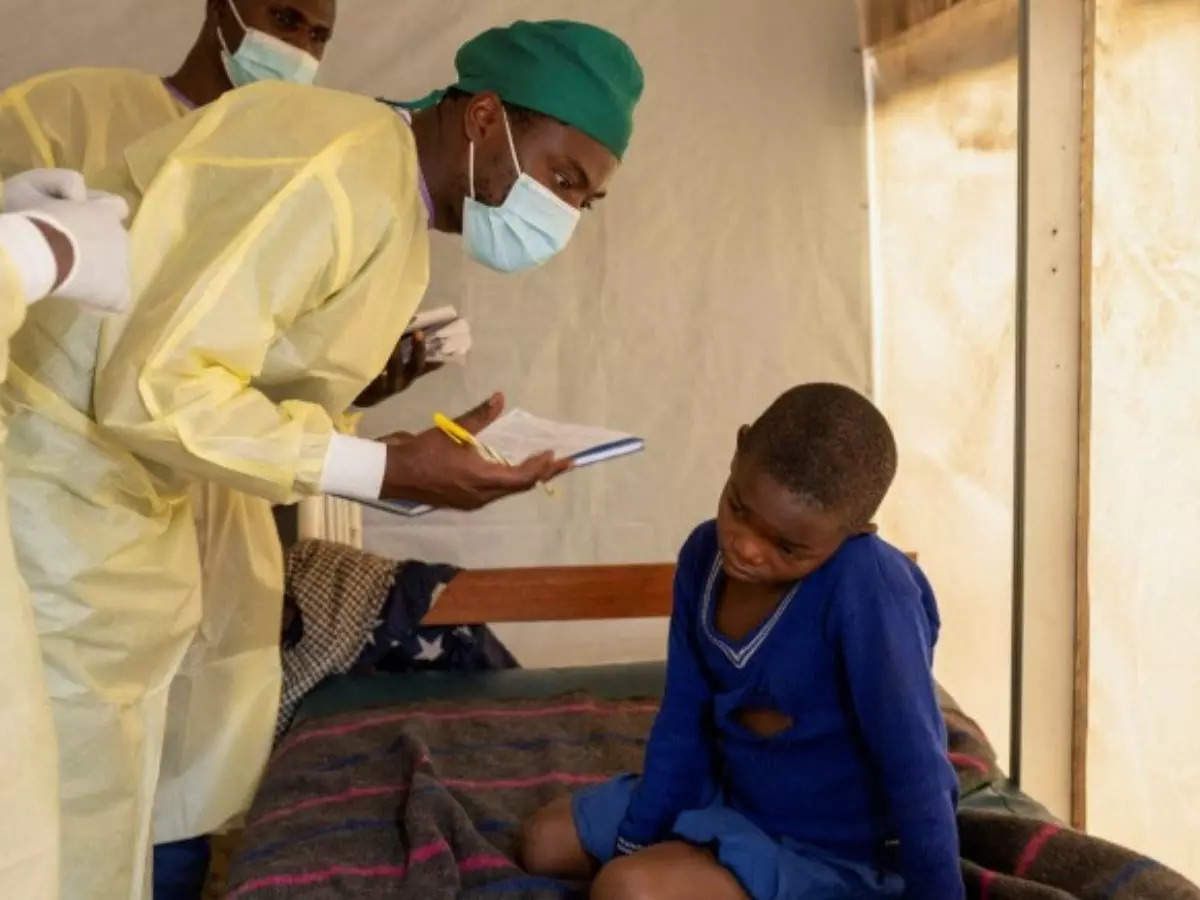
By Jennifer Rigby
London: Vaccines to help curb an escalating mpox outbreak in Democratic Republic of Congo and neighbouring countries may still not reach the central African country for months even as the World Health Organisation considers following Africa’s top public health agency in declaring the outbreak an emergency.
On Tuesday, Africa Centres for Disease Control and Prevention declared a public health emergency of continental concern for the first time ever, and on Wednesday, a WHO-led panel meets to decide if it represents a global threat.
But while experts hoped the meetings would galvanise action worldwide, many obstacles remain, including limited vaccine supply, funding and competing disease outbreaks.
“It is important to declare an emergency because the disease is spreading,” said Jean-Jacques Muyembe-Tamfum, head of Congo’s Institut National pour la Recherche Biomedicale (INRB). He said he hoped any declaration would help provide more funding for surveillance as well as supporting access to vaccines in Congo.
But he acknowledged the road ahead was not easy in a huge country where health facilities and humanitarian funds are already stretched by conflict and outbreaks of diseases like measles and cholera.
“If the big declarations remain just words, it won’t make any material difference,” said Emmanuel Nakoune, an mpox expert at the Institut Pasteur de Bangui in Central African Republic.
Africa CDC said last week it had been granted $10.4 million in emergency funding from the Africa Union for its mpox response, and its director general Jean Kaseya said on Tuesday there was a clear plan to secure 3 million doses of vaccine this year, without elaborating further.
However, sources involved in planning a vaccination roll-out in Congo said only 65,000 doses were likely to be available in the short-term, and campaigns were unlikely to begin before October at the earliest.
There have been more than 15,000 suspected cases of mpox in Africa this year and 461 deaths, mainly among children in Congo, according to Africa CDC. The viral infection is usually mild but can kill, and causes flu-like symptoms and pus-filled lesions.
A new offshoot of the virus has caused outbreaks in refugee camps in the east of Congo this year, and spread to Uganda, Burundi, Rwanda and Kenya for the first time.
Ivory Coast and South Africa are also experiencing outbreaks linked to a different strain of the virus, which spread globally in 2022, largely among men who have sex with men. This outbreak prompted WHO to declare a global emergency before ending it 10 months later.
Then, two vaccines were used – Bavarian Nordic’s Jynneos, and LC16, made by KM Biologics. Outside clinical trials, neither has ever been available in Congo or across Africa, where the disease has been endemic for decades. Only LC16 is approved for use in children.
Congo’s regulators approved the use of the vaccines domestically in June, but the government is yet to officially request any from either the manufacturers or governments like the United States looking to make donations through the global vaccine group, Gavi.
(Reporting by Jennifer Rigby; Editing by Giles Elgood)







